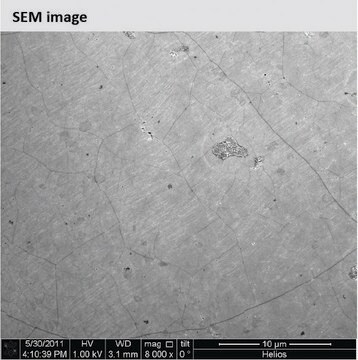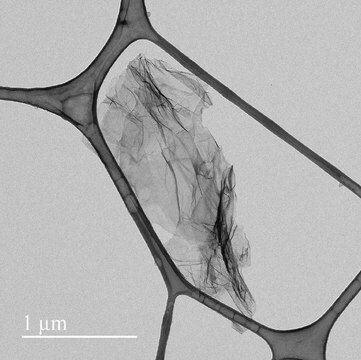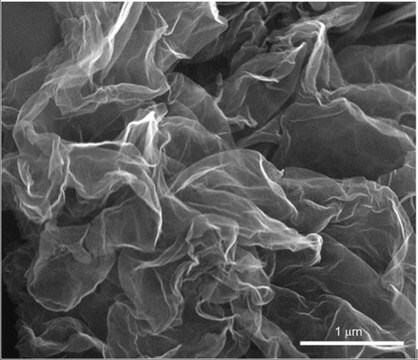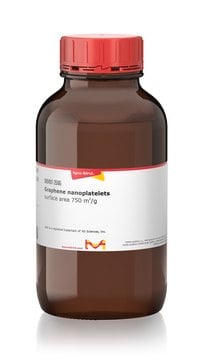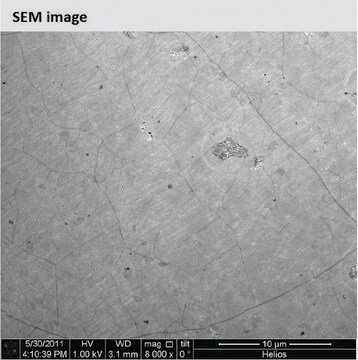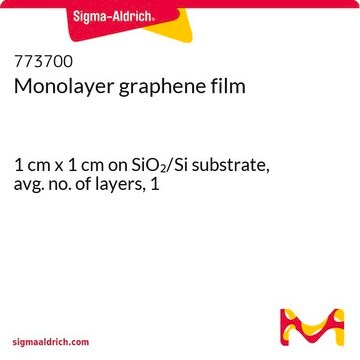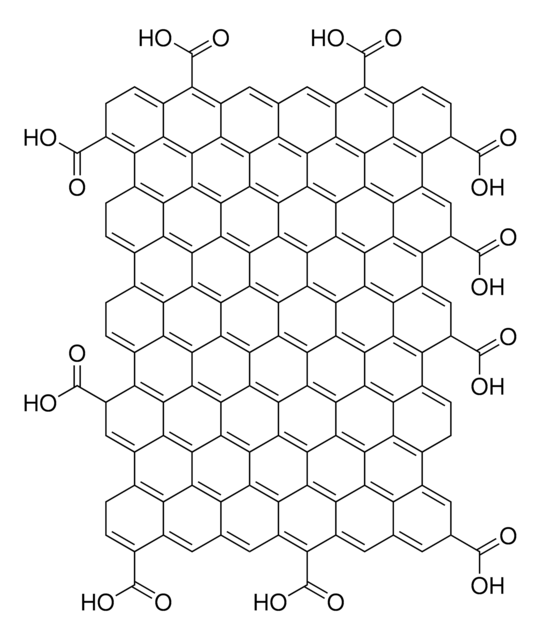900415
Graphene, monolayer film
10 cm x 10 cm on copper foil, avg. no. of layers, 1
Synonym(s):
Graphene/Cu
About This Item
Recommended Products
Product Name
Monolayer graphene film, 10 cm x 10 cm on copper foil, avg. no. of layers, 1
Quality Level
form
film
feature
avg. no. of layers 1
Looking for similar products? Visit Product Comparison Guide
Related Categories
General description
- Graphene film.
- Growth method: CVD synthesis.
- Appearance: Transparent film.
- Transparency: >97%.
- Coverage: >95%.
- Number of graphene layers: 1.
- Thickness (theoretical): 0.345 nm.
- FET electron mobility on Al2O3: 2000 cm2/Vs.
- Hall electron mobility on SiO2/Si: 4000 cm2/Vs.
- Sheet resistance on SiO2/Si: 450±40 Ω/sq (1cm x1cm).
- Grain size: Up to 10 μm.
- Substrate: Copper Foil.
- Thickness: 18 μm.
Application
- Flexible batteries.
- Electronics.
- Aerospace industry.
- MEMS and NEMS.
- Microactuators.
- Conductive coatings.
Storage Class
13 - Non Combustible Solids
wgk_germany
WGK 2
flash_point_f
Not applicable
flash_point_c
Not applicable
Choose from one of the most recent versions:
Already Own This Product?
Find documentation for the products that you have recently purchased in the Document Library.
Customers Also Viewed
Articles
Professor Ebrahimi and Professor Robinson (Pennsylvania State University, USA) summarize recent advances in the synthesis of these 2D materials, resulting material properties, and related applications in biosensing of neurotransmitters, metabolites, proteins, nucleic acids, bacterial cells, and heavy metals.
Professor Gogotsi and Dr. Shuck introduce MXenes: a promising family of two-dimensional materials with a unique combination of high conductivity, hydrophilicity, and extensive tunability.
Advances in scalable synthesis and processing of two-dimensional materials
Our team of scientists has experience in all areas of research including Life Science, Material Science, Chemical Synthesis, Chromatography, Analytical and many others.
Contact Technical Service